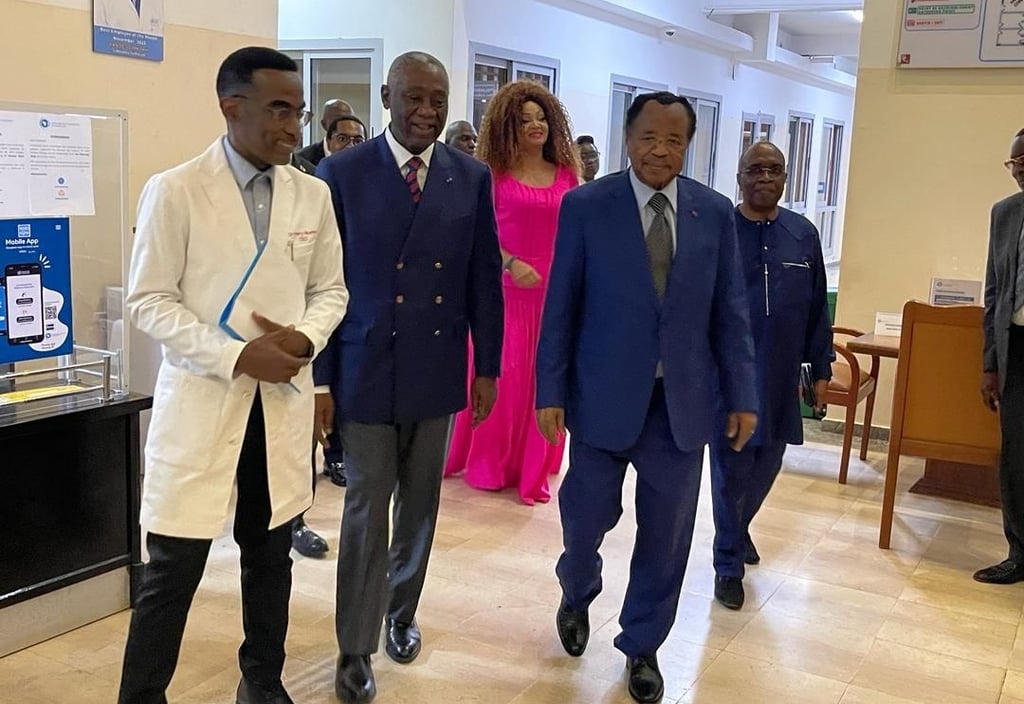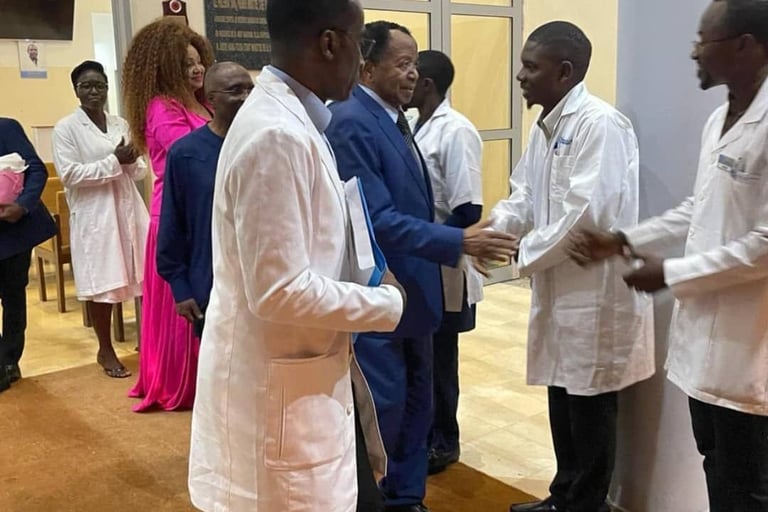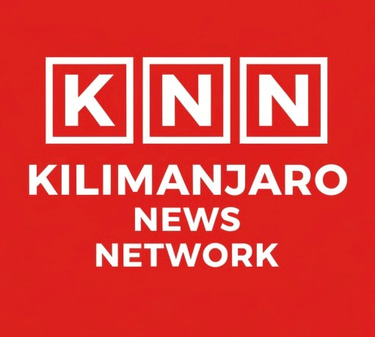Is Paul Biya Truly Severing Ties with France?
Perhaps the most telling indicator of Biya's reliance on France lies in the realm of security. Despite claims of severed military ties, President Biya recently honoured French military cooperation officers. This action underscores the ongoing cooperation on defence matters, crucial for a nation facing internal security threats.
POLITICS
3/8/20242 min read


Yaounde: The narrative surrounding Cameroon's relationship with France has taken a peculiar turn. Recent pronouncements suggest President Paul Biya is actively distancing his administration from its former colonial power. This supposed shift coincides neatly with upcoming Cameroonian presidential elections in 2025, prompting the question: is Biya merely posturing for a more nationalistic image?
Cameroon's ties to France under Biya are undeniable. French colonisation left a lasting mark, evident in the continued use of French as an official language and a legal system heavily influenced by French codes. Economic ties remain strong, with French companies like Bolloré Group, a logistics and transportation giant, playing a crucial role in Cameroon's infrastructure and energy sectors. The recently approved contract for Bolloré to expand the Douala International Terminal further strengthens this economic connection. Additionally, AFD (Agence Française de Développement), the French development agency, continues to be a major source of funding for infrastructure projects across Cameroon, including a recent multi-million dollar agreement to upgrade the national telecommunications network.
While some argue Biya has cancelled contracts that favoured France, a closer look reveals a more nuanced picture. International relations are rarely driven by singular motives. Economic considerations, political expediency, and strategic alignments all play a role. Moreover, cancelling contracts without due process can damage Cameroon's reputation as a reliable investment destination.
Perhaps the most telling indicator of Biya's reliance on France lies in the realm of security. Despite claims of severed military ties, President Biya recently honoured French military cooperation officers. This action underscores the ongoing cooperation on defence matters, crucial for a nation facing internal security threats.
Biya's flirtation with distancing himself from France appears, at best, a carefully crafted performance to suit the current narrative following events in Burkina Faso, Mali and Niger. The reality is far more pragmatic. France remains a powerful economic partner, a key security ally, and a significant source of foreign direct investment. Construction giant Razel-Bec, a subsidiary of the French Fayat Group, continues to secure major infrastructure contracts, like the recent highway rehabilitation project in the western region. President Biya, facing potential challenges: separatists in the anglophone regions, his age 92, longevity in power and widespread poverty in the country, rising fuel prices, high inflation, poor road networks are some of his difficulties after 42 years in power and seeking another mandate that will take him to the age of 99 at te end of his ter. At this stage Biya understands the importance of maintaining a stable and cordial relationship with France something he has done throughout his career. He famously claimed to the best student to the French president.
While Biya might navigate a more assertive foreign policy with his recent calculated trip to Russia, a severing of ties with France is highly improbable. At 92 going to 99 Paul Biya is weak. Paul Biya is not a reformer, he has never been. This "best student" to the French president has never opposed France. Cameroonians have always believed he's in power because of France. He needs France's protection economic muscle and military muscle more than he might publicly admit. The upcoming elections will undoubtedly influence Biya's rhetoric in light of widespread opposition to France throughout Africa, but the underlying reality – a complex and enduring relationship – is unlikely to change. With is track of subservience to France it would be safe bate to state "On ne change pas l'équipe qui gagne."


